[This post has been updated to include the supporting pedagogical material]
Data-Pop Alliance ran a 3-day training workshop from June 27-29, 2017 on “Leveraging Big Data for sustainable development” at the United Nations Office at Nairobi (UNON) in partnership with the United Nations System Staff College (UNSSC), as part of a comprehensive program to respond to major ‘Big Data literacy’ and data science needs and gaps of development and policy professionals around the globe, especially in Africa, Latin American and the Caribbean, and Asia and the Pacific.
The program includes a series of similar training workshops taking place in global policy hubs (Nairobi, Dakar, Kigali, Bogotá, Bangkok,..) a webinar series, supporting pedagogical material including a generic Toolkit and a workshop-specific participants Guidebook developed by Data-Pop Alliance available in open source, as well as an e-library of curated resources on Big Data and Sustainable Development to be launched in September 2017. It was developed with initial core funding from the Hewlett Foundation and supplementary funding from UNSSC and the United Nations Commission for Latin American and the Caribbean (UNECLAC).

Madame Sahle-Work Zewde, UNON Director General, and Emmanuel Letouzé, Director and co-Founder of Data-Pop Alliance
The workshop, opened by Madame Sahle-Work Zewde, UNON Director General, brought together 50 participants from the UN system, National Statistical Offices and other government agencies, civil society organizations, and academia, representing 25 countries from the region (Kenya, Tanzania, Ethiopia, Rwanda, Uganda, Somalia), as well as India, Italy, Tunisia, Thailand, Sri Lanka, and Vietnam, among others.
As its predecessors, this workshop reflected Data-Pop Alliance’s conceptualization of Big Data as a socio-technological phenomenon and ecosystem to be shaped towards development and democracy rather than just large datasets to be mined for insights. Based on our initial research with the MIT Center for Civic Media and Internews, it also considered and sought to promote ‘data literacy’ as ‘literacy in the age of data’ beyond technical skills, to promote community engagement and empowerment.
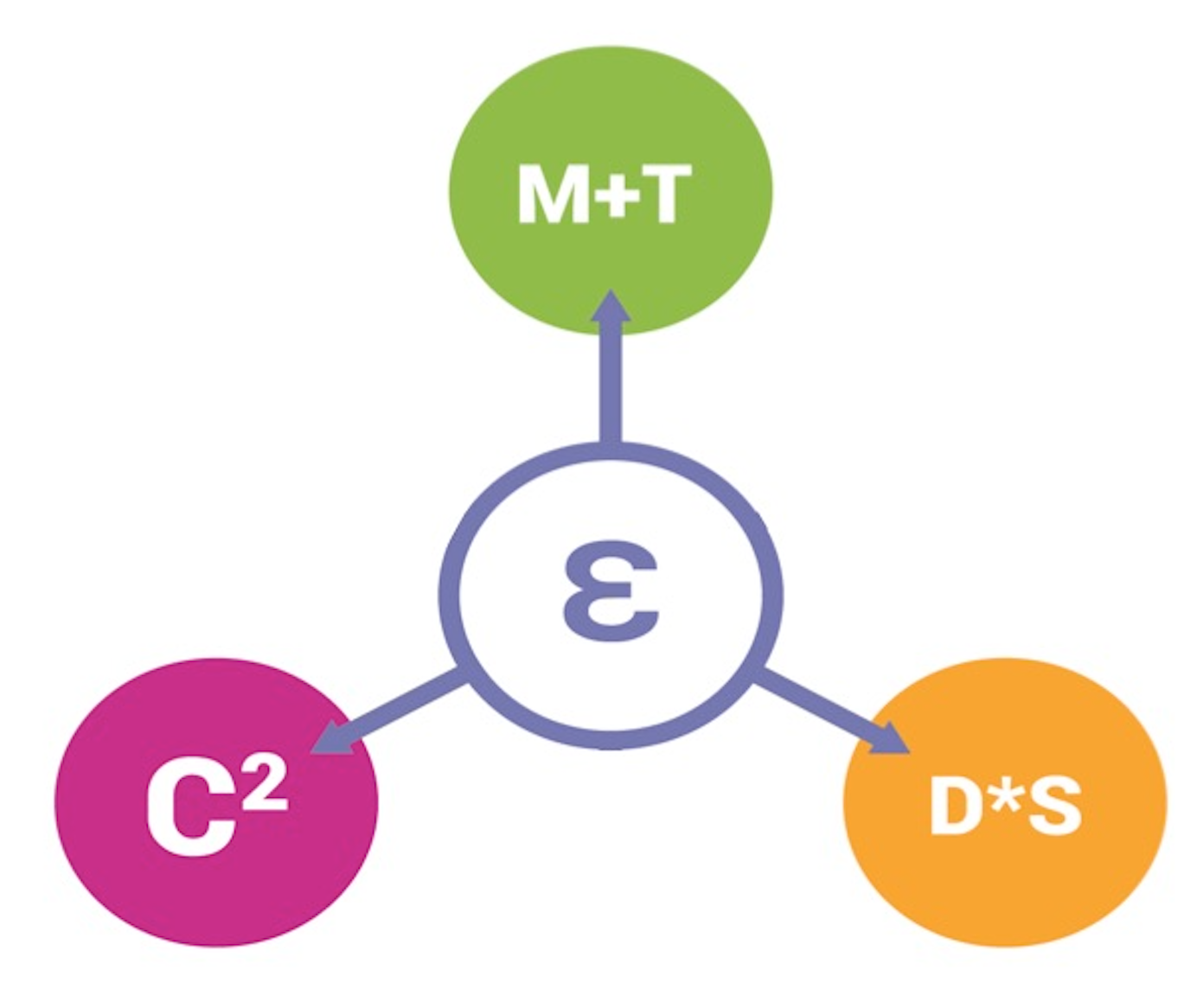
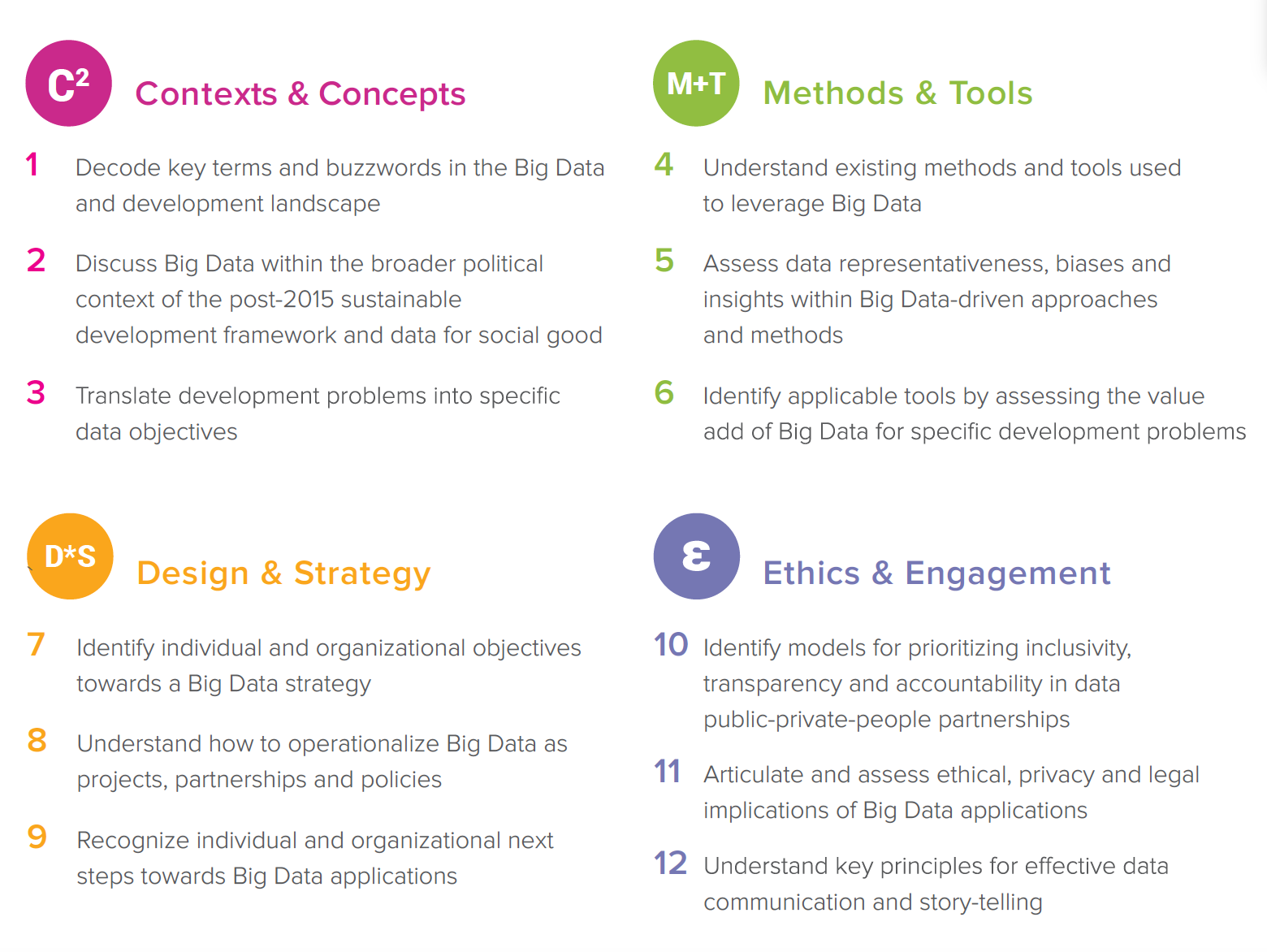
The full agenda can be accessed here.
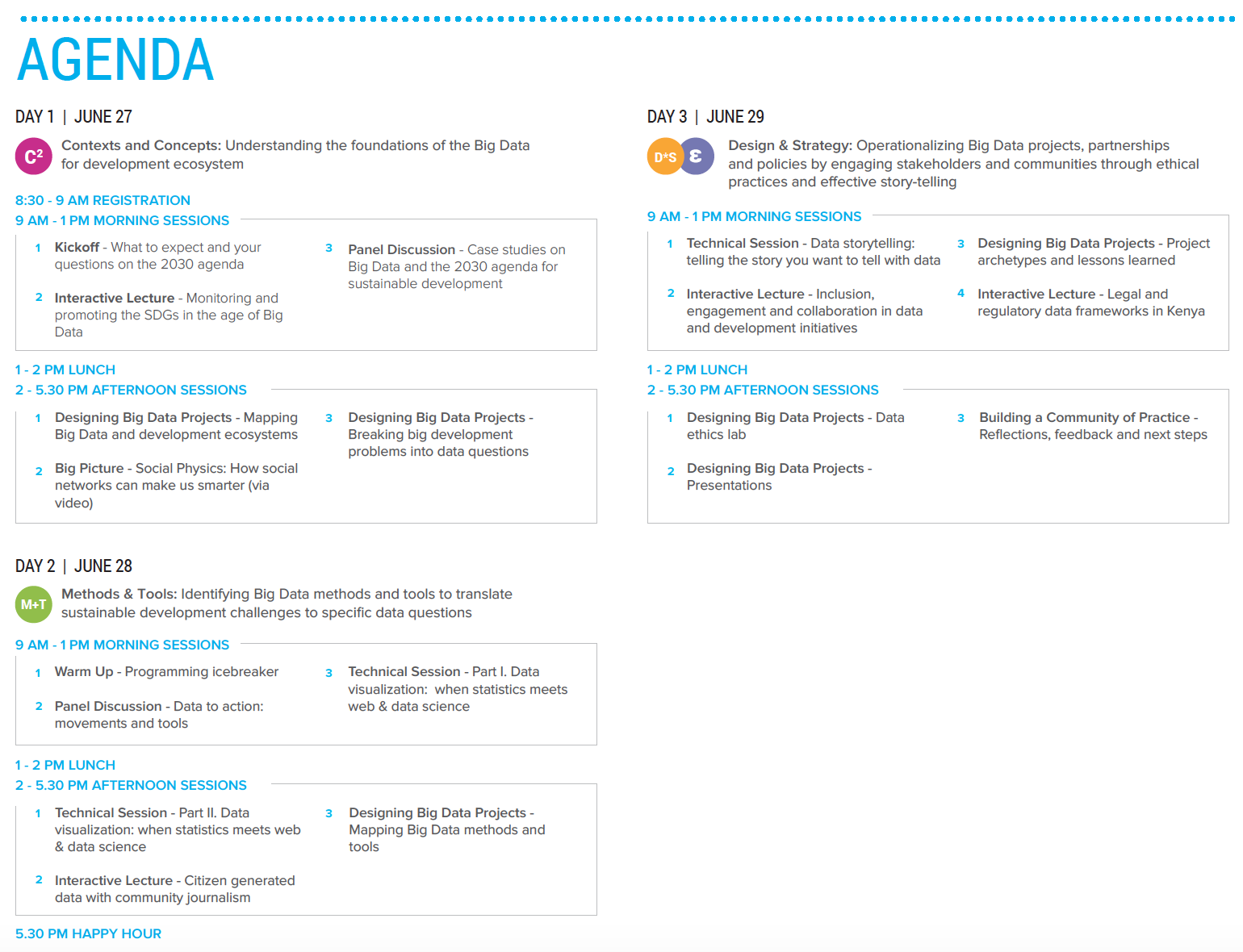

Participants developed Big Data projects in groups (here around Ugo Caruso, UNSSC Course Coordinator) over the course of the 3 days to try and address a development challenge, considering all steps and requirements of the process including ethical principles
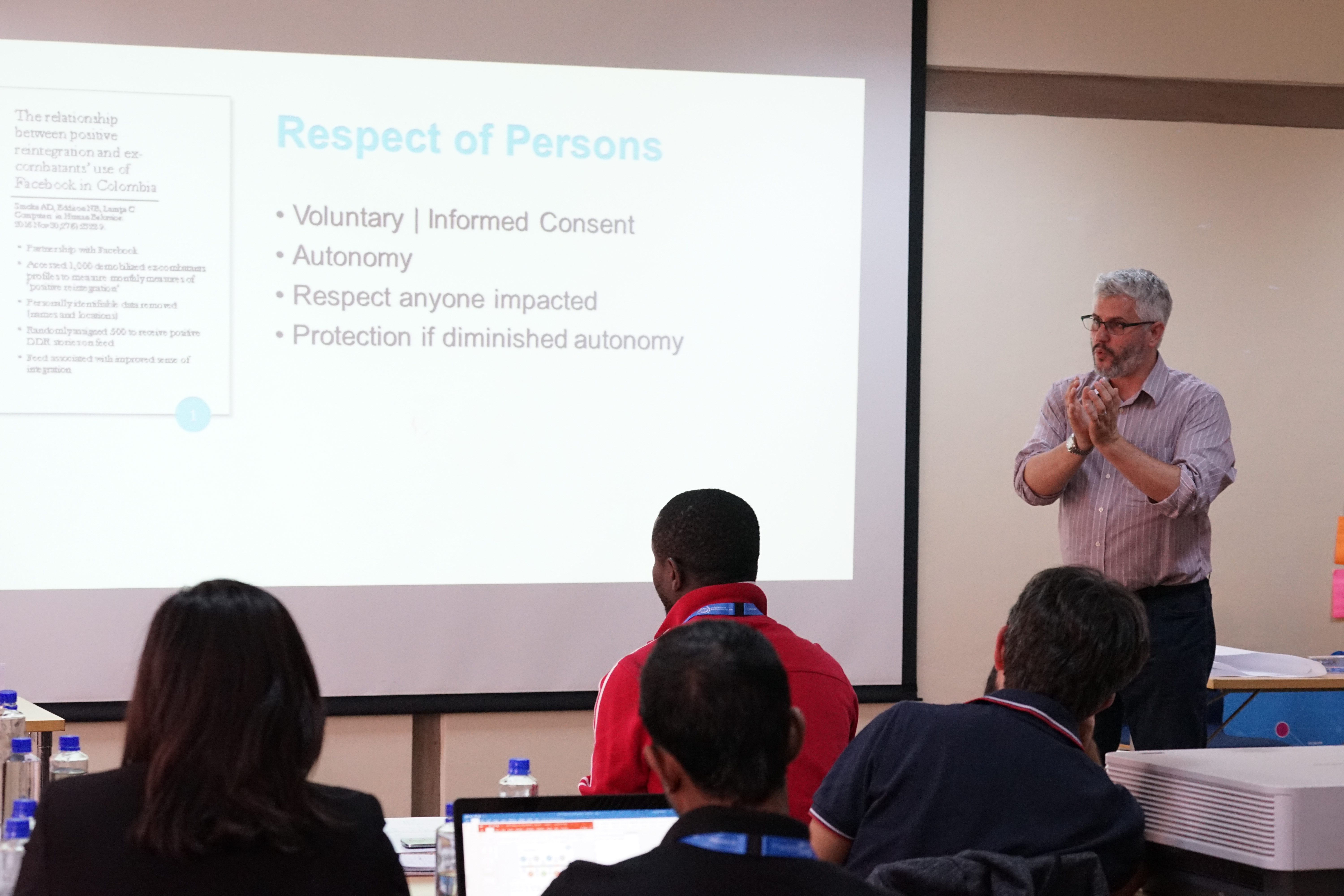
Patrick Vinck, co-founder and co-director of Data-Pop Alliance, Assistant Professor at Harvard University and Director of Research of the Harvard Humanitarian Initiative leading a session on data ethics
To provide a wide range of perspectives, the agenda included a dozen speakers and facilitators from the private sector (Sanda Ojiambo, Safaricom; Silas Macharia, IBM Kenya; Skyler Speakman, IBM Research), civil society (Davis Adieno; Civicus, Bill Anderson, Development Initiatives, Joshua Owino and Zacharia Muindi, Map Kibera; Al Kags, Open Institute), multilateral and bilateral donors (Thomas Roca, Agence Française de Développement; Joseph Marindi, UNOCHA; Jilian Campbell, UNEP, Ugo Caruso, UNSSC), government (Nixon Mageka Gecheo, Communications Authority of Kenya) and academia (Emmanuel Letouzé, Data-Pop Alliance and MIT Media Lab; Patrick Vinck, Harvard University and Data-Pop Alliance).
The workshop’s sessions, and its group activities running over 3 days in particular, were facilitated by Data-Pop Alliance team members from the US and Colombia (Natalie Shoup, Julie Ricard, Ana Lucía Martínez, Emmanuel Letouzé, Patrick Vinck), UNSSC (Ugo Caruso), and institutional partners (Thomas Roca from AFD, Jos Berens from HumanityX). They also benefited from support from UNON leadership and staff.
This workshop was the 3rd under our partnership with UNSSC with initial funding from the Hewlett Foundation, following a pilot held at MIT Media Lab in June 2016 and the inaugural full-fledge workshop organized in Bogotá in December 2016. Five more will follow in the next few months: in Dakar in October, in Bogotá, in December, then in Kigali, Addis-Ababa and Bangkok in Q1-Q2 2018.
Other training workshops are and will be offered to complement these flagships workshops. Data-Pop Alliance and UNECLAC are already offering another series of workshops more squarely focused on Big Data and the digital economy in the LAC region for UN and governmental staff, which started in Santiago de Chile (March 2016), and will next be delivered in São Paulo (September 2017), Mexico City (October 2017) and Bogotá (Q1 2018).
Soon, Data-Pop Alliance will be leading the capacity building and community engagement components of the Open Algorithms (OPAL) project pilots in Senegal and Colombia, as part of our efforts to address urgent needs and gaps to empower professionals and citizens to realize the promise of the Data Revolution and progress towards the Sustainable Development Goals.
For more information, suggestions or questions, please contact training@datapopalliance.org

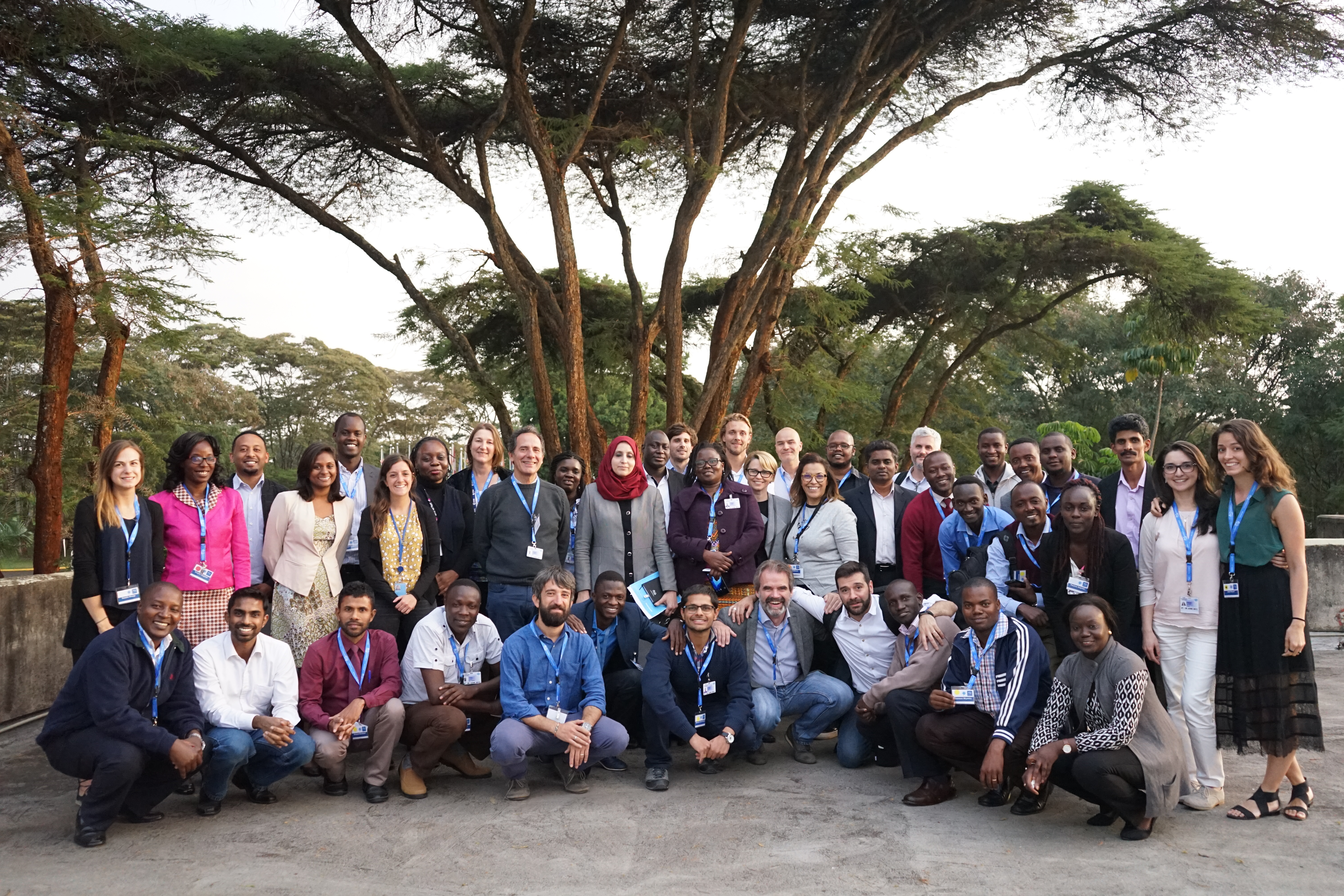
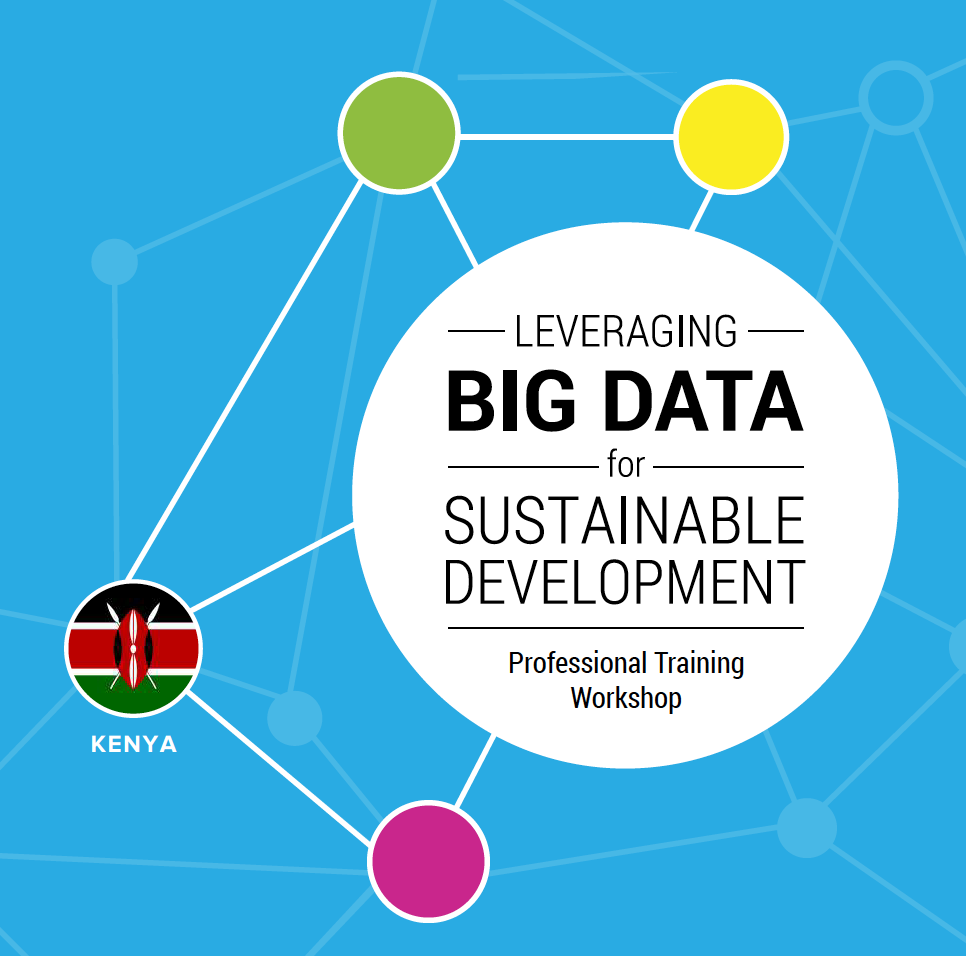

![M002 - Feature Blog Post [WEB]](https://datapopalliance.org/wp-content/uploads/2025/10/M002-Feature-Blog-Post-WEB.png)





